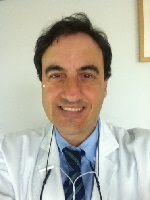Research course in Translational Radiation Biology - PDF Version
8 -11 November 2020, online
Course directors:
Martin Pruschy, Biologist, University Hospital Zürich, Zürich, Switzerland
Marie-Catherine Vozenin, Biologist, Centre Hospitalier Universitaire Vaudois, Lausanne, Switzerland
My name is Rafael Martínez Monge and I am chair of the Radiation Oncology Department in the Clínica Universidad de Navarra (CUN) in Pamplona, Spain. Most of my career has been devoted to clinical research, mainly in the field of brachytherapy. A couple of years ago I realised that advances in technology would be soon surpassed by advances in radiation biology and decided to delve into the underlying mechanisms that were involved in local relapse. After I had set up a radiobiology research team in the Center for Applied Medical Research (CIMA) at the University of Navarre, I decided to complete my training in radiation biology through participation in the research course in translational radiation biology and oncology that is run by the European SocieTy for Radiotherapy and Oncology (ESTRO).
This ESTRO research course covered a wide and well-distributed spectrum of radiation biology topics that ranged from the traditional Rs of radiobiology and the different modes of radiation-induced cell death to the radiobiology of experimental beams. The course also focused on the interaction of radiation with common cell processes such as proliferation, signalling and DNA homeostasis. It provided an understanding of how radiation response is affected by genomic instability, cellular metabolism and tumour microenvironment. We also received an eye-opening account of the varying complexity of human tumours and their natural evolution towards resistant clone selection to evade treatment pressure.
One full day of the course was dedicated to coverage of the hottest topic in radiation biology: radio-immunology. We received a detailed description of how irradiation affects the innate and adaptive immune system, the interaction between radiation and immunology at the level of the primary tumour and the abscopal off-target effects.
ESTRO has made a phenomenal effort to ensure the delivery of safe, precise treatment to those patients who are deemed to be candidates for radiotherapy. However, a number of questions remain that require answers in order to advance along the path of individualised radiation medicine. Examples of such questions are:
- which patients can safely skip radiation treatments because they will not result in any beneficial effect? and
- among those patients who will benefit, what is the optimal radiation schedule and combination with non-radiation adjuvants that are right around the corner?
It is time for us to find answers for individual patients and not for patient categories. Radiation biology is ready to help us out.
This course is a must; do not miss the next one. I will not.

Rafael Martinez-Monge
Professor and chair of radiation oncology
Co-chair, Department of Oncology
Clínica Universidad de Navarra
Pamplona, Spain
rmartinezm@unav.es